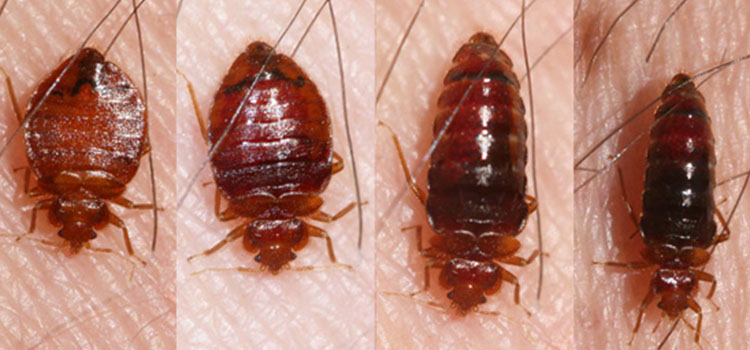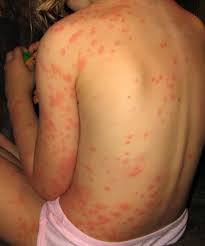Bed Bugs
Bed bugs are
small parasitic insects that feed on human blood by piercing the skin. They do
not live on humans or burrow into the skin. They are very mobile, but only move
short distances to feed, so are commonly found near food (blood) sourcees. Generally,
bed bugs are more of a nuisance pest than a serious health threat. There is no
evidence to indicate that they transmit any infectious disease. Bed bugs can
live up to six months at room temperature and can survive for long periods
without a blood meal. They usually feed during the night, but bed bugs can be
opportunistic feeders (feed whenever the opportunity is present).
 What do they look like?
What do they look like?
Adult bed
bugs are 4–6mm in length, oval in shape and are dark reddish brown in colour.
Juveniles are 1–5mm in length, depending on the growth stage and are cream in
colour, becoming red to blackish after taking a blood meal. Adult females can lay
up to three eggs per day, which hatch within 10 days (longer in cooler
temperature). Eggs are creamy white and about 1mm in length.
Bed bugs
have dorsoventrally flatten (thin) bodies, thus they can stay well hidden in
narrow crevices and cracks.
Where are they found?
Bed bugs are
most commonly found on mattresses, particularly along the stitched edges where
there are folds that help to conceal them. They are also found on bed frames,
in bed side furniture, in photo frames, behind wall paper, in cracks and
crevices or other areas of a room that will provide them with protection, such
as carpet edges, behind skirting boards or between wooden floor boards.
 What are the signs?
What are the signs?
- -
Live
bed bugs or cast skins
- -
Eggs
- - Dark
spots of bed bug excrement or blood. These can be found on bed sheets,
mattresses, skirting boards or in cracks and crevices
- -
You
may also notice bite marks on your skin, although 1 in 5 people bitten may not
experience a reaction and the bite may not be noticed for up to 9 days. Skin
reactions include redness, swelling and wheals up to 2cm in size, itching and
burning sensations. Humans tend to be bitten most often on the shoulders and
arms, in distinctive lines.
How are bed bugs spread?
Bed bugs can
walk short distances to adjoining rooms or can be carried over greater
distances in and on people’s luggage and belongings. This is how bed bugs are
moved from infested premises to new premises around Australia and
internationally.
How can I eradicate bed bugs?
Calling in
professional pest controllers is a crucial part of eradication. There are no
chemicals out there in supermarkets that work against bed bugs.

No comments:
Post a Comment